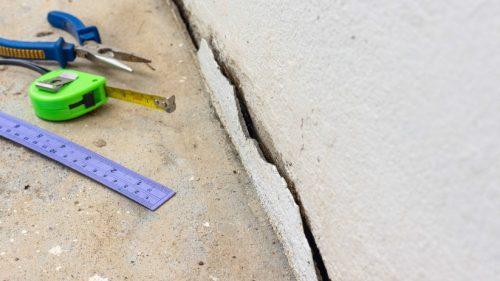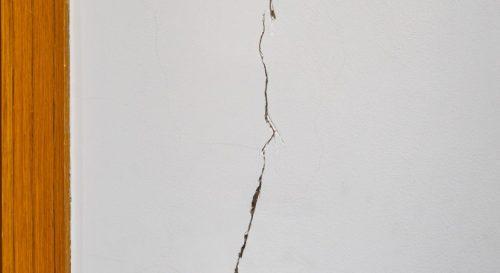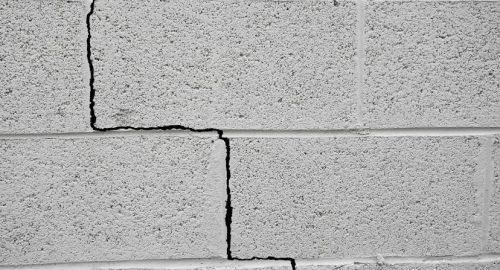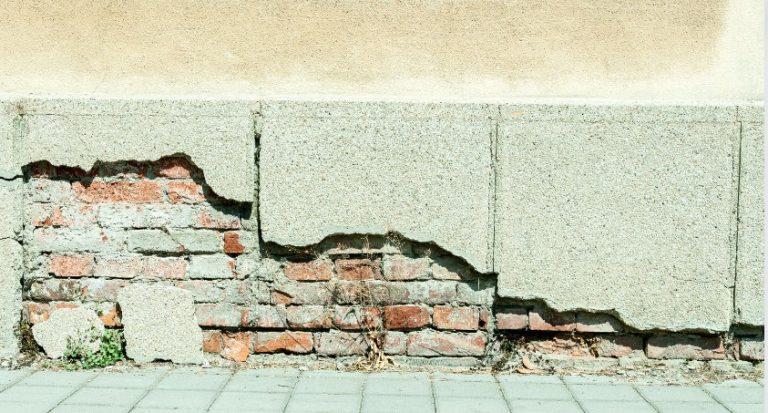Post Contents
Are you noticing cracks in your walls or uneven floors in your home? It could be a sign that your foundation is damaged and in need of repair. Foundation issues are not uncommon, especially in older homes or areas with unstable soil. But what exactly causes this damage, and more importantly, how much will it cost to fix the foundation in the UK?
In this blog post, we’ll explore the factors that can contribute to foundation damage and discuss the average cost of repairing foundations in the UK. We’ll also provide some helpful tips on choosing the best foundation for a house and share a handy checklist for those considering foundation repair. So, let’s get started on understanding all there is to know about fixing foundations!
What Causes Damage to Foundations?

Foundations are the backbone of any structure, providing stability and support. However, they can be susceptible to damage due to various factors. One common cause is moisture. When the soil around a foundation becomes saturated with water, it can lead to expansion and contraction, putting pressure on the foundation walls.
Another culprit behind foundation damage is poor construction practices. If a foundation isn’t properly designed or built with high-quality materials, it may not be able to withstand the weight and stress placed upon it over time.
In some cases, natural disasters such as earthquakes or floods can wreak havoc on foundations. The shifting of the ground during an earthquake or excessive water from flooding can compromise the integrity of a foundation.
Moreover, tree roots can also pose a threat to foundations. As trees grow and spread their root systems underground, they can exert pressure against the foundation walls, causing them to crack or shift.
Age plays a significant role in foundation deterioration. Over time, wear and tear will naturally occur in any structure’s foundation due to exposure to environmental elements like temperature fluctuations and soil movement.
Understanding these causes is crucial because identifying them early on allows for prompt action and mitigates further damage down the line. By addressing these issues promptly through professional repair services tailored specifically to your situation, you’ll ensure that your home’s structural integrity remains intact for years to come!
How Much Does It Cost to Fix Foundation in UK?

When it comes to fixing foundation problems in the UK, one of the first questions that homeowners ask is: how much will it cost? The answer to this question can vary depending on several factors. The average cost for repairing a foundation is around £7,500 – £9,500.
One of the main factors that determine the cost of foundation repairs is the extent of the damage. Minor cracks and settling issues may be relatively inexpensive to fix, while more severe structural problems could require extensive work and, thus, a higher price tag.
Another factor that affects the cost is the type of foundation repair method used. There are various techniques available, such as crack injections, underpinning, or drainage improvements. Each method has its own associated costs.
The size and layout of your property can also impact the overall cost. Larger homes with complex foundations may require more labour and materials, driving up expenses.
It’s important to consider any additional services required during foundation repairs. This could include water damage restoration, mould remediation, or landscaping repairs after excavation work.
To get an accurate estimate for your specific situation, it’s best to consult with a professional contractor who specializes in foundation repairs. They will assess your home’s unique needs and provide you with a detailed quote.
Remember that investing in timely foundation repairs is crucial for maintaining both the value and safety of your home in the long run!
What is the Best Foundation for a House?
When it comes to building a house, the foundation is one of the most critical components. It provides stability and support for the entire structure, ensuring its durability and longevity. But what exactly is the best foundation for a house?
There are several types of foundations commonly used in construction, each with its own advantages and considerations. One popular option is a poured concrete foundation. This type offers exceptional strength and can withstand heavy loads, making it ideal for larger or multi-story homes.
Another common choice is a concrete block or masonry foundation. These foundations are durable and resistant to moisture, which can be particularly important in areas prone to flooding or high groundwater levels.
For those looking for an eco-friendly option, consider using insulated concrete forms (ICFs). These foundations provide excellent insulation properties while maintaining structural integrity.
Alternatively, you may opt for a crawl space foundation if your area has stable soil conditions. This type allows easy access to utility lines but may require additional measures to prevent moisture issues.
The best foundation for your house will depend on various factors such as soil conditions, climate, budget, and personal preferences. Consulting with a professional engineer or contractor can help determine the most suitable option based on these considerations.
Remember that every home’s needs are unique; therefore, it’s essential to evaluate all available options before making a decision. Selecting the right foundation type tailored to your specific requirements and circumstances ensures that you have chosen the best possible solution for your new home’s stability and structural integrity.
Foundation Repair Checklist

When it comes to fixing foundation issues, having a checklist can help ensure that every necessary step is taken. Here are some important things to consider when creating your foundation repair checklist:
- Inspection: Start by thoroughly inspecting the foundation for signs of damage, such as cracks, uneven floors, or moisture problems. This will help determine the extent of the repairs needed.
- Hire a Professional: It’s crucial to hire an experienced and qualified professional who specializes in foundation repairs. They have the expertise and knowledge required to assess the problem accurately and provide appropriate solutions.
- Obtain Multiple Quotes:Don’t settle for the first contractor you come across; obtain multiple quotes from different professionals. This will give you an idea of what is considered a fair price for your specific repair needs.
- Consider Foundation Type:Different types of foundations require different repair methods, and costs vary accordingly. Whether it’s a concrete slab, pier and beam, or crawl space foundation, make sure your chosen contractor has experience with your specific type.
- Permits and Regulations:Check if there are any permits required for repairing your foundation, as regulations may vary depending on your location.
- Timeframe:Discuss with your contractor how long the repairs will take so that you can plan accordingly.
- Cost Breakdown: Ask for a detailed breakdown of all costs involved in repairing your foundation, including materials, labour, permit fees (if applicable), etc., so you have a clear understanding of where each dollar is being spent.
By following this checklist when dealing with foundation repairs, you can ensure that everything goes smoothly without any surprises along the way!
How Long to Leave Foundations Before Building UK?
When it comes to building a house, one essential aspect that cannot be overlooked is the foundation. The strength and stability of a structure depend on its foundation, which is why it’s crucial to ensure that the groundwork is done properly.
But how long should you leave the foundations before starting the actual construction in the UK? Well, there isn’t a one-size-fits-all answer to this question, as several factors come into play.
It depends on the type of foundation being used. Different types have different curing times. For instance, concrete strip foundations typically require around seven days to cure before any load can be applied. On the other hand, piled foundations may need several weeks or even months for proper settlement and stabilization.
Another factor to consider is weather conditions. In countries like the UK, where rainfall is common, adequate time must be given for excess moisture in the ground to dissipate. This helps prevent any potential problems with shrinking or swelling soils that could affect the stability of your building over time.
Furthermore, local regulations and building codes may also dictate specific waiting periods before proceeding with construction after laying down foundations. It’s important to consult with professionals who are familiar with these regulations in your area.
While there are general guidelines for how long foundations should cure before building in the UK (typically ranging from a week up to several months), it ultimately depends on various factors such as foundation type and local conditions. Taking sufficient time for proper curing and settling will ensure a solid base for your future home or structure.
How Deep Are Foundations in UK?

When it comes to building a house or any structure, one of the most crucial aspects to consider is the foundation. The depth of foundations in the UK varies depending on several factors.
The first factor that determines the depth of foundations is the type of soil present at the construction site. In areas with stable and firm soils, shallow foundations can be sufficient. However, in regions with clayey or loose soils, deeper foundations may be necessary for stability and preventing settlement.
Another factor influencing foundation depth is the load-bearing capacity required for the structure. Heavier buildings or structures will generally require deeper foundations to distribute weight evenly and prevent issues such as sinking or structural damage over time.
Additionally, local regulations and building codes play a role in determining foundation depths. These guidelines are put in place to ensure safety and compliance with standards set by governing bodies.
It’s worth mentioning that consulting with an experienced structural engineer or architect is essential when determining suitable foundation depths for your specific project. They will assess all relevant factors mentioned above and provide professional guidance tailored to your unique situation.
There isn’t a one-size-fits-all answer to how deep foundations are in the UK, as it depends on various factors like soil conditions, load-bearing requirements, and local regulations. Engaging experts who have knowledge about these aspects ensure a solid foundation for your construction project without compromising safety!
Conclusion
Foundation damage can be caused by a variety of factors, such as soil movement, poor construction practices, and water-related issues. It is important to address these issues promptly to prevent further damage and ensure the stability of your home.
When it comes to fixing foundation problems in the UK, the cost can vary depending on the extent of the damage and the necessary repairs. Factors such as accessibility and location can also affect costs. It is recommended to consult with professionals who specialize in foundation repair to get an accurate assessment and estimate for your specific situation.
Choosing the right type of foundation for your house is crucial in ensuring its long-term stability. Factors such as soil conditions, building regulations, and budget should all be taken into consideration when making this decision. Consulting with architects or engineers can provide valuable insight into selecting the best foundation for your specific needs.
Before starting any construction project, it is essential to allow sufficient time for foundations to properly settle and cure. This helps avoid future structural issues that may arise from inadequate curing time. The recommended duration will vary depending on various factors, such as soil composition and weather conditions.
The depth of foundations in the UK depends on several factors, including building regulations, ground conditions, load-bearing capacity requirements, and site-specific considerations. Professional advice should always be sought when determining suitable depths for foundations based on these variables.
Related Articles:


